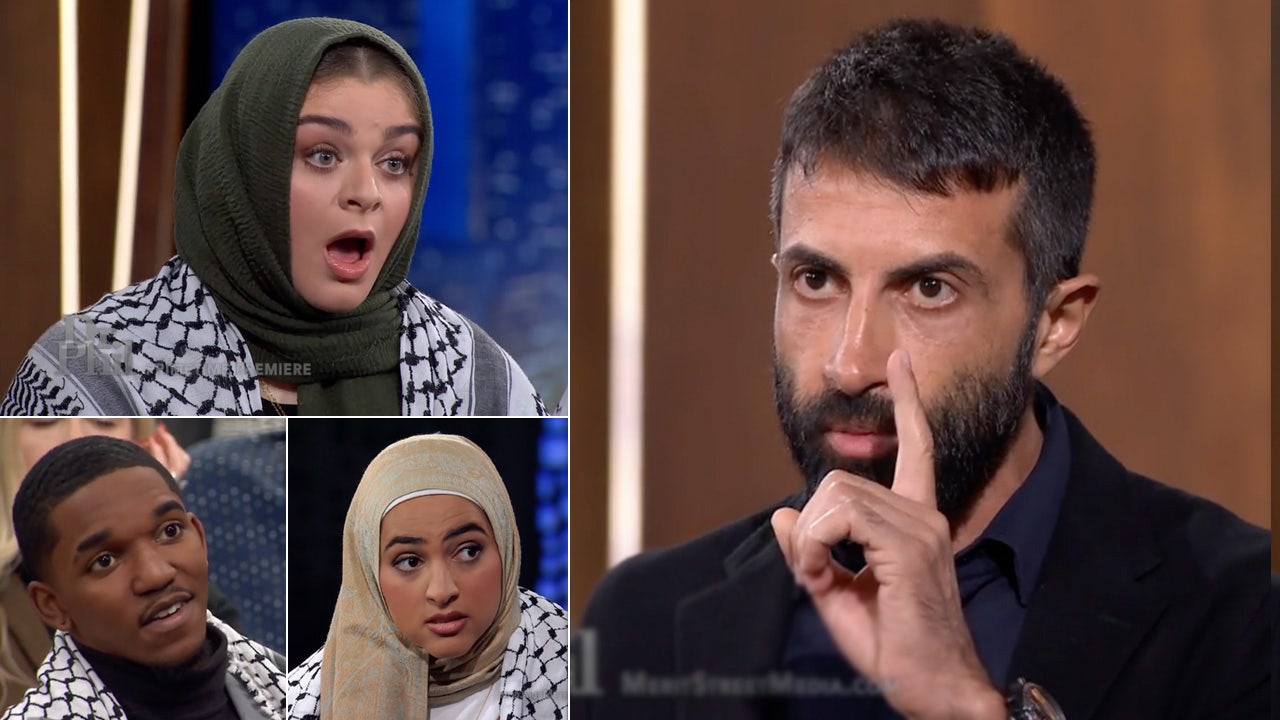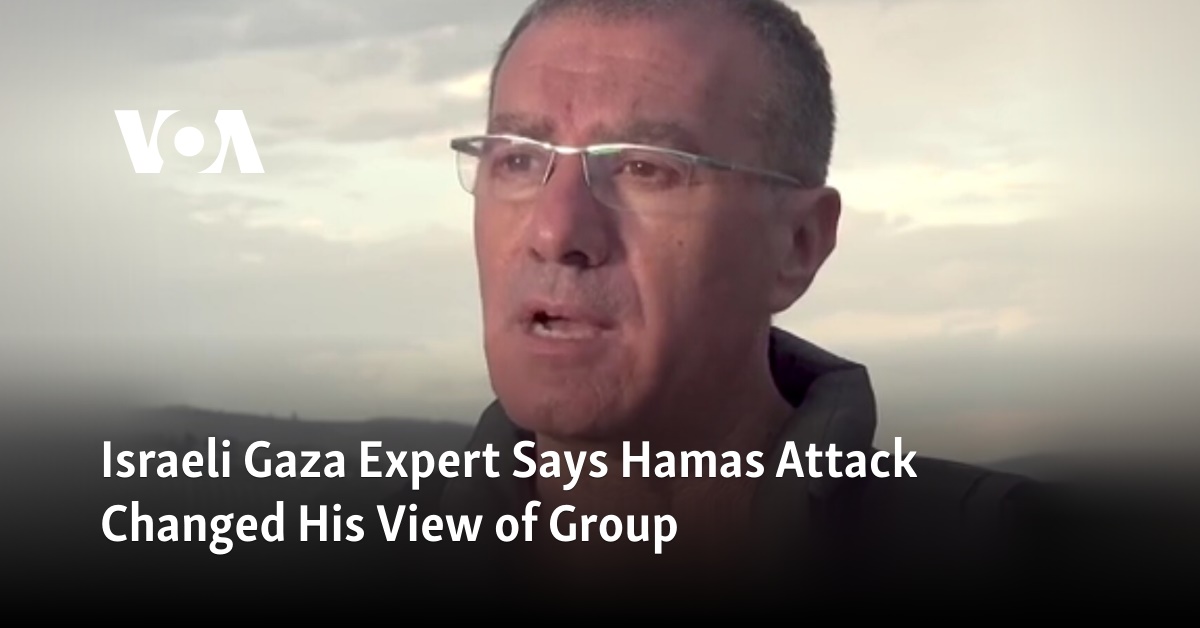





The recent Hamas attack in Gaza has had a profound impact on Israeli experts, leading to a significant shift in their perception of the group. Amira Hass, a Gaza expert, who had previously tried to humanize the Palestinians in Gaza through his work as a reporter, author, and documentarist, now sees Hamas as a group that cannot be reasoned with. Witnessing the brutality of the attack and viewing the bodycam footage of the attackers has left him in deep shock. He compares their behavior to that of the Nazis and the Holocaust [d8843688].
Former senior Shin Bet official, Ilan Lotan, also commented on the ongoing war in Gaza and the assassination of top Hamas official Marwan Issa. Lotan stated that the assassination of Issa would not affect the tactical level of the battle in Gaza. He also questioned the possibility of achieving 'absolute victory' in Gaza, stating that victory should mean dismantling the frameworks of targeted killings. Lotan expressed skepticism about the idea of peace in Gaza, stating that he does not see a situation where 'doves of peace fly over the Gaza Strip without being shot down and eaten.' He also discussed the question of who would be in charge of the intake and distribution of goods in Gaza if a US naval dock is built. Lotan concluded by stating that he does not see a situation where Hamas can be defeated without Israel entering and occupying Rafah [40e69562].
Hass believes that Hamas has neglected its responsibilities to the people of Gaza and has diverted resources from civilians to violence. He points to the influence of Hamas leader Yahya Sinwar, known for his cruelty, and the education of children in Gaza towards violence. While acknowledging that Hamas can be defeated militarily, Hass recognizes that it cannot be eliminated as an ideological movement.
Hass is pessimistic about the possible solutions for after the war and criticizes Prime Minister Benjamin Netanyahu's strategy of weakening the Palestinian Authority. He concludes that the Israeli government has failed to contain Hamas and warns that the group can be rebuilt in the future [d8843688].
Mosab Hassan Yousef, a Hamas defector and son of Hamas co-founder Sheikh Hassan Yousef, appeared on 'Dr. Phil Primetime' to debate pro-Palestinian activists Salma and Zaynab from the University of Michigan. Yousef criticized Americans for supporting Hamas, stating that Hamas does not respect its followers and would torture and massacre them. He called pro-Palestinian activists 'useful idiots' and said they need to go to a mental asylum. Yousef accused the activists of giving Hamas cover and being complicit in its crimes. He argued that there is no difference between Hamas and Palestinians, claiming that the majority of Palestinians support Hamas. A poll indicated that support for Hamas increased after the October 7 attacks. Yousef also stated that if Palestinians did not have Israel as a common enemy, they would kill each other. The debate on 'Dr. Phil Primetime' received attention for its intense and confrontational nature [e6ba17e0].
In a separate development, Bassem Yousef engaged in a debate with Konstantin Kisin regarding the Israeli government's actions in Gaza. Yousef argued that the Holocaust should not be considered exceptional and that historical analogies, such as comparing Gaza to the Warsaw ghetto, can help people understand the situation. He also criticized the focus on the Holocaust as a unique atrocity and suggested that it may be due to racism. Yousef emphasized the importance of universalizing the lessons from the Holocaust and applying them to all instances of genocide. The author of the article supports Yousef's argument and calls for historical analogies, including those to World War II, to be used to highlight the ongoing genocide in Gaza [3a021f42].
Former U.N. Ambassador Nikki Haley called for Gazan Palestinians to “separate themselves” from Hamas, stating that an entire generation in Gaza believes their job is to 'murder the Jewish people'. Haley emphasized that the Palestinians need to separate themselves from Hamas because they have been indoctrinated. She mentioned that it wasn't just Hamas that participated in the attacks, but thousands of Palestinian citizens also took part in robbing and murdering people. Haley also called for American universities to stop accepting Arab money and criticized colleges for not successfully addressing antisemitic threats against Jewish students. She mentioned that U.S. colleges and universities receive about $55 billion from foreign sources, with one-fourth coming from Arab individuals, institutions, and governments. Haley expressed disbelief at the rhetoric coming from college students and activists that denies or downplays the severity of Hamas' attack on Israeli civilians. She urged Americans to sympathize with Israel and stand with them. Haley's comments came after she toured several sites where Hamas massacred civilians, accompanied by Danny Danon, her former counterpart in the U.N. who is now a member of Knesset. Haley also mentioned her conversation with a survivor of the Nova massacre, who shared the horrors she witnessed and experienced. She emphasized the importance of believing the victims and not victimizing them again. Haley concluded by stating that she doesn't take the intense rhetoric used by political campaigns personally and that her focus is on a strong America and a strong Israel [245f4b5c].
Nobel Prize-winning German writer Herta Muller has written an open letter addressing the conflict between Israel and Hamas. She criticizes Hamas for its brutal massacre of Israeli citizens and its celebration of the bloodbath. Muller highlights the long-standing goal of Hamas and Iran to destroy Israel and the Jewish people. She also criticizes the support for Hamas among some Western students and intellectuals, questioning their understanding of democracy and their alignment with a terrorist organization. Muller argues that Hamas uses the suffering of the Palestinian people as a weapon against Israel and manipulates the media to present itself as the sole defender of Palestinians. She draws parallels between the Hamas massacre and the atrocities committed by the Nazis, emphasizing the need to remember the Holocaust and the importance of Israel's existence. Muller concludes by questioning the moral compass of those who support Hamas and their disregard for the suffering of Israeli civilians and the use of human shields by Hamas [d713606a].